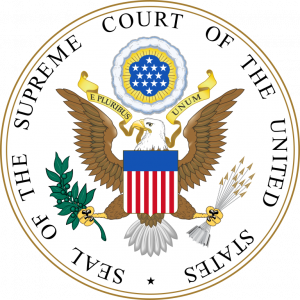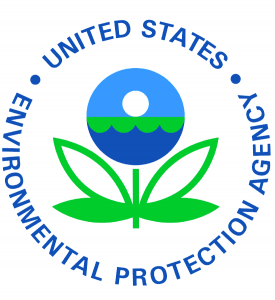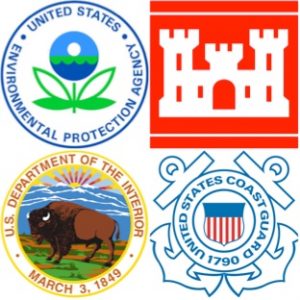The availability of broadband internet service in multiple tenant environments (MTE) is always a bit of a balancing act between promoting competitive access to tenants and preserving adequate incentives for the initial service providers to deploy, maintain, and upgrade infrastructure. In “FCC Seeks Comment on Accelerating Broadband Deployment in Multi-Tenant Buildings and Preempts Wire-Sharing Requirement in San Francisco Ordinance,” colleague Glenn S. Richards examines the FCC’s recent Notice of Proposed Rulemaking (NPRM) and Declaratory Ruling on the subject.
With the Rise in Sea Levels, a Rise in “Soft” Coastal Resiliency Approaches
With estimates that sea levels could rise two to six feet over the next century, states are incorporating adaptation and coastal resiliency into their planning and permitting regimes. In “INSIGHT: States Shift From Seawalls to Living Shorelines,” colleagues Eric Moorman and Ashleigh Acevedo examine the different strategies being considered and deployed by coastal states.
A Recap of the Supreme Court’s 2019 Summer Slate
EPA and States Take Aim at PFAS
White House’s New Draft Guidance Limiting NEPA Review of Greenhouse Gas Impacts Is Not So New or Limiting
On June 21, 2019, the White House Council on Environmental Quality (CEQ) issued draft guidance clarifying the treatment of greenhouse gas (GHG) emissions in environmental impact reviews of federal projects under the National Environmental Policy Act (NEPA). Those wishing to comment on the draft must submit comments within 30 days after it is published in the Federal Register.
As the Term Winds Down, Several Important Regulatory Cases Await the U.S. Supreme Court
 The Supreme Court will be deciding some very important regulatory law cases in the new few weeks as the term winds down.
The Supreme Court will be deciding some very important regulatory law cases in the new few weeks as the term winds down.
CERCLA Circled
Last week, the Court granted a petition to review a significant CERCLA case, Atlantic Richfield Company v. Christian, et al., decided by the Supreme Court of Montana on state law grounds. This case involves state litigation which could result in a cleanup whose scope is allegedly inconsistent with an ongoing and expensive federal CERCLA cleanup at the Anaconda Smelter site. CERCLA basically provides that no one may challenge an ongoing Superfund cleanup, yet this state common law proceeding seeking a cleanup of the plaintiff’s homes and properties arguably threatens the EPA-approved cleanup remedy. ARCO filed a petition for certiorari with the Supreme Court, which the Court has now granted despite the Solicitor General’s brief which argued that the Court should wait to see the results of the Montana trial. (It is unusual for the Court to reject the advice of the Solicitor General.)
As Some States Use the Clean Water Act to Delay Energy Projects, EPA Issues New CWA 401 Guidance
In just the past few weeks, three states have used their Clean Water Act 401 authority to delay, for an indefinite period, FERC-authorized pipeline expansion projects. On May 6, 2019, the Oregon Department of Environmental Quality denied, without prejudice, Jordan Cove’s application for a Section 401 water quality certification. Jordan Cove plans to build an LNG export terminal at Coos Bay, Oregon, if it can obtain the necessary federal and permits. Under Section 401(a) of the Clean Water Act, any applicant for a federal permit to conduct any activity, including the operation of facilities which may result in any discharge into the navigable waters, shall provide the permitting agency a certification from the State in which the discharge may originate that any such discharge will comply with the applicable provisions of the Clean Water Act, including effluent limitations and state water quality standards. The States have a “reasonable time”—which shall not exceed one year after the receipt of the 401 application—in which to act, or the state’s authority may be waived by this inaction. The Oregon DEQ concluded that Jordan Cove has not demonstrated that its project, as presently configured, will satisfy state water quality standards. The 401 applications submitted by Transcontinental Gas Pipe Line Co. (Transco) to the New Jersey Department of Environmental Protection and the New York State Department of Environmental Protection were similarly rejected without prejudice on May 15, 2019 (New York) and June 5, 2019 (New Jersey). This use of the states’ 401 authority has frustrated plans to build and operate LNG pipelines around the country.
Recent Environmental Cases: Something in the Water, in the Air and in the Woods
 State of Texas, et al. v. US EPA. The revised regulatory definition of “Waters of the U.S.” continues to generate litigation in the federal courts. On May 28, 2019, the U.S. District Court for the Southern District of Texas held that the 2015 rulemaking proceedings used by EPA and the U.S. Army Corp of Engineers to redefine this important component of the Clean Water Act were flawed in that the notice and comment provisions of the Administrative Procedure Act (APA) were violated because insufficient notice was provided by these agencies that “adjacent” waters newly subject to the regulatory jurisdiction of these agencies, can be determined on the basis of specific distances, which was a change in the agencies’ thinking, and insufficient notice of this change was provided to the public. In addition, the final rule “also violated the APA by preventing interested parties from commenting on the scientific studies that served as the technical basis” for the rule. However, the court did not vacate the new rule, but remanded the matter to the “appropriate administrative agencies” to give them an opportunity to fix this problem.
State of Texas, et al. v. US EPA. The revised regulatory definition of “Waters of the U.S.” continues to generate litigation in the federal courts. On May 28, 2019, the U.S. District Court for the Southern District of Texas held that the 2015 rulemaking proceedings used by EPA and the U.S. Army Corp of Engineers to redefine this important component of the Clean Water Act were flawed in that the notice and comment provisions of the Administrative Procedure Act (APA) were violated because insufficient notice was provided by these agencies that “adjacent” waters newly subject to the regulatory jurisdiction of these agencies, can be determined on the basis of specific distances, which was a change in the agencies’ thinking, and insufficient notice of this change was provided to the public. In addition, the final rule “also violated the APA by preventing interested parties from commenting on the scientific studies that served as the technical basis” for the rule. However, the court did not vacate the new rule, but remanded the matter to the “appropriate administrative agencies” to give them an opportunity to fix this problem.
Future Environmental Rulemaking Proceedings Listed in the Spring 2019 Unified Federal Agenda
Environmental Roundup – May 2019
Federal Courts of Appeal
Dam Claims Collapse
On May 7, 2019, the U.S. Court of Appeals for the Eleventh Circuit decided the case of Navelski, et al. v. International Paper Company. After a major storm, a dam constructed by International Paper to serve the operations of its local paper mill, was breached, releasing millions of gallons of water into a nearby creek resulting in the flooding of many homes located downstream from the creek. IP was sued by the homeowners in a class action, alleging negligence and strict liability for conducting an abnormally dangerous activity. The trial court dismissed the strict liability claim, and the jury found IP was not negligent in the operation of the dam. On appeal, the court upheld the jury verdict, agreeing that the verdict was supported by the evidence heard by the jury. The appeals court also agreed that the strict liability claim was properly dismissed as a matter of law because the operation of this dam was not an abnormally dangerous activity under Florida law. The plaintiffs had also argued that the jury should not have been advised that the home county, Escambia County, has applied for a FEMA grant which apparently made the case that some of the downstream homes were naturally prone to flooding. A redacted version of the application was allowed to be shown to the jury, but the appeals court held that the plaintiffs had not demonstrated that the court ruling was prejudicial.





